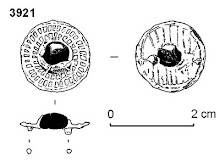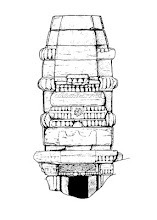
In 2008 Urban Archaeology provided training seminars in post-excavation processes to staff at LP Archaeology, a leading archaeological unit in London.
The seminars covered the use of the Bonn archaeological matrix program, subgrouping, spot-dating, grouping, landuse and periodisation using one of their sites as a working example. The theoretical background to the 'Landuse' approach was discussed, and each stage of the post-excavation process was described and demonstrated using site data. The methodological processes, potential problems and workarounds and the implications of using this system for programming post-excavation projects were all discussed.
The seminars were backed up by our own training handouts and wider reading material. This training allowed LP Archaeology to fine tune their database structure and post-excavation methodologies.
Guy Hunt of LP Archaeology said:
"We were very pleased to offer this excellent training in post excavation techniques to our project managers. This is part of our commitment to CPD and training for our staff. The seminars were very well executed and have subsequently proved extremely valuable to us both in project work and on a more general level as we have revised our companywide post excavation practices.
"We were very pleased to offer this excellent training in post excavation techniques to our project managers. This is part of our commitment to CPD and training for our staff. The seminars were very well executed and have subsequently proved extremely valuable to us both in project work and on a more general level as we have revised our companywide post excavation practices.
In particular, we wanted our project managers to gain a greater in depth knowledge of the systems that can be used to handle sites with deep and complex stratigraphy. The presentation style was informative and enjoyable. I would heartily recommend this service to any other unit looking to raise awareness and skill levels in post excavation techniques."
Urban Archaeology has developed a series of training resources for excavation and post-excavation processes; these can be used as handouts for one-to-one or group training seminars, as prompts for 'toolbox talks' on technical archaeological subjects, or as general handouts to staff (click on example to enlarge).














No comments:
Post a Comment